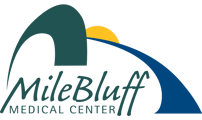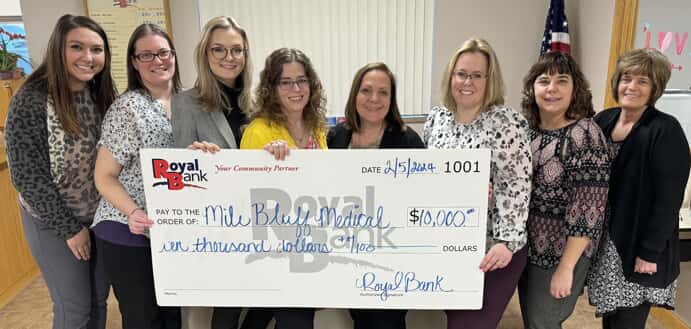Check out a book - or a BP kit! All you need is a library card
- Category: Community Resources
- Posted On:
High blood pressure (BP), also known as hypertension, is a common medical condition that impacts men and women of all ages. There are 116 million adults in the US living with high BP and less than half of them have their BP under control. Often called the ‘silent killer,’ high BP raises a person’s risk for heart attack, stroke, diabetes and kidney disease. This makes both diagnosing and effectively managing hypertension critical.
Knowing the long-term impact high BP can have on a patient, healthcare providers often encourage people to ‘know their numbers.’ Being mindful of and controlling BP allows patients to receive the care that they need and make better lifestyle choices that will lead to a longer, healthier life.
For a number of years, Mile Bluff Medical Center’s clinics have worked with the Rural Wisconsin Health Cooperative to assist patients in better controlling their high BP. The goal was to increase the number of patients ages 18 to 85 who have their BP under control (below 140/90). Self-monitoring BP for an extended period of time at home has proven effective in helping patients control their BP. Unfortunately, not everyone can afford to purchase a BP cuff for personal use.
Now, with the support of local Lions Clubs, Mile Bluff and local libraries have made BP monitoring kits available for check out to area residents. These kits include a BP monitor/cuff, instructions, educational material about BP, and a BP tracking journal. Kits can be checked out for two weeks at time from libraries in Mauston, New Lisbon, Necedah, Kendall and Elroy.
Home monitoring can help patients keep tabs on BP levels, learn what may impact their BP, and also helps patients know when to alert healthcare providers when their BP is too high or low. “Having the kits available at the libraries allows access to more residents than a stationary monitor at a location such as a local drug store or pharmacy,” said June Stine, RN, Mile Bluff Clinics Quality Coordinator “It also reaffirms the importance of checking your BP.”
Having the two-week record of BP levels gives healthcare providers and patients a more accurate picture of BP levels. It also takes into account the variables that can affect BP, such as exercise, stress, medication, caffeine and anxieties.
These BP monitoring kits are part of a much larger BP control initiative taking place at Mile Bluff. Recently, Mile Bluff Medical Center was recognized by the American Heart Association (AHA) and American Medical Association (AMA) for its commitment to helping improve BP control rates among its patient population, earning Gold recognition as part of the 2020 Target: BP Recognition Program.
The recognition celebrates organizations that have 70 percent or more of their adult patient population with high BP, controlled. Mile Bluff joins just 13 other healthcare organization in Wisconsin in earning this recognition.
"We are so happy to be partnering with Mile Bluff in this effort to control high blood pressure,” said Bridget Christenson, director of Hatch Public Library. “ The Hatch Public Library in Mauston is in the business of improving ‘literacy’ including health literacy, and we already check out all sorts of non- traditional items such as disc golf sets, a watt reader for measuring electric usage, WiFi hot spots, slide projector-- not JUST books, so this project with Mile Bluff seemed like a natural fit."
If residents in Mauston, New Lisbon, Necedah, Kendall and Elroy are interested in checking out a BP kit, they need to contact their local library. Due to COVID-19 many local libraries have patron restrictions in place, but the library staff will help individuals to check out a kit. Community members do not need to be a Mile Bluff patient to take advantage of this opportunity.
Home BP monitoring is not a substitute for regular visits to a healthcare provider. Those who have been prescribed medication to lower BP should continue to take their medication while monitoring their BP at home. If while monitoring, BPs are not within a ‘normal’ range, everyone is encouraged to call their healthcare provider.
For more information about BP management, visit the American Heart Association at www.heart.org, or call a local healthcare provider.


